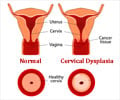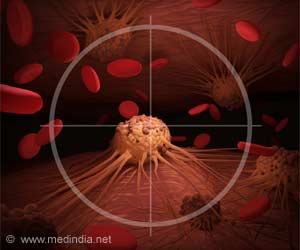The human papillomavirus (HPV is considered one of the most common sexually transmitted diseases (STDs) in the world and a necessary agent of cervical cancer.
The human papillomavirus (HPV), an infectious disease of the skin and inner membranes, is considered one of the most common sexually transmitted diseases (STDs) in the world and a necessary agent of cervical cancer. Research now shows that Chlamydia increases this risk.
Jeff Korte, Ph.D., principal investigator of a National Cancer Institute funded study and assistant professor at the Medical University of South Carolina (MUSC), tracked HPV infections in 68 women with existing STDs to analyze the impact of genital infections over a two-year period. Korte found that HPV infections lasted longer if Chlamydia also was present. “HPV persistence is one of the most important risk factors for cervical cancer”, said Korte. “If an HPV infection persists longer, it is more likely to be accompanied by a serious lesion and progress to cancer”.Prevention is through vaccination, which protects against the four HPV types. Since the majority of HPV-positive people contract the disease within a few years of sexual activity, there is a push to vaccinate young adolescents. Current vaccines have been approved for women ages nine to 26, but targeted to girls 11 to 13.
Though the HPV vaccine is a socially controversial issue, the spread of HPV is a major public health concern. Therefore, investigators from MUSC's College of Nursing and the Hollings Cancer Center Office of Prevention and Control are working on a National Cancer Institute funded study to determine perceptions about the HPV vaccine and identify both facilitators and barriers among specific demographics. “The HPV vaccine will change how we screen for cervical cancer in the United States,” said Sharon Bond, study investigator and certified nurse midwife at MUSC. “The vaccines give us the capability to virtually eradicate a common cancer-causing virus that claims the lives of more than 250,000 women around the world every year.”
Source-Newswise
SRM/K











